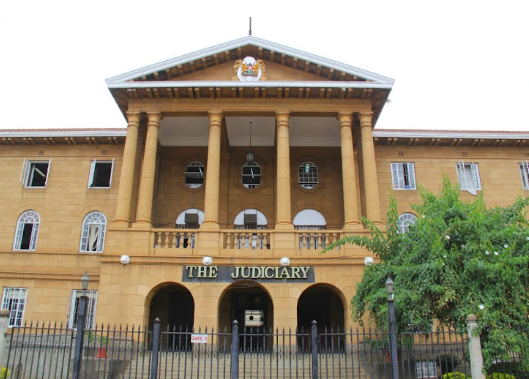President William Ruto is facing significant criticism for allegedly undermining the independence of the Judiciary, just two years after positioning himself as a champion of judicial justice.
A newly released report, titled *Upholding Judicial Independence in Kenya*, highlights several issues affecting judicial independence, including political threats and attacks from both the government and opposition. The report documents how these actions have negatively impacted the delivery of justice in Kenya.
The report indicates that President Ruto has criticized the Judiciary on multiple occasions, notably when the courts rejected the housing levy last year and recently regarding the Kenya Kwanza government’s decision to deploy police officers for a peacekeeping mission in Haiti. Additionally, the report mentions that Opposition leader Raila Odinga opposed a meeting between Ruto and Chief Justice Martha Koome, suggesting it threatened judicial independence despite the leaders representing two branches of government.
“Government-allied politicians also continued their attacks on the Judiciary in 2023 whenever it criticized the Ruto administration for legal and procedural issues in implementing government projects. Recently, the Judiciary has faced scrutiny after questioning why Parliament overlooks public interests,” the report from the Friedrich Naumann Foundation states.
The report warns that rampant disregard for court orders by the executive undermines the Judiciary’s authority and disrupts the balance of power within the government. “When a court judgment is ignored, the independence of the Judiciary is meaningless if political decisions overshadow judicial rulings,” the report asserts.
It continues: “Politicians often struggle to accept that their powers must be exercised within legal limits. The court has a duty to intervene when legal norms protecting individual rights and social cohesion are violated.” The report also criticizes the perception of courts and judges as obstacles to government initiatives, noting that even President Ruto has publicly stated he would not respect court orders that hinder government projects.
To preserve the integrity and independence of the Judiciary, the report emphasizes the need to formalize regulations governing the transfer of judges.
The report further emphasizes the importance of clear guidelines for the transfer of judges, noting that without such standards, the process can become arbitrary and open to manipulation. This undermines the impartiality and independence of judicial officers.
It cites the case of Justice Mugure Thande, who was transferred from the Constitutional and Human Rights Division to the Malindi High Court shortly after her ruling that temporarily halted the collection of taxes under the 2023 Finance Act. The report argues that transfers should be based on objective criteria such as performance, expertise, and judicial needs, rather than external pressures or political influence.
The report also addresses widespread allegations of corruption within the judiciary, noting that such claims erode public trust and weaken the judiciary’s role in checking government power. It highlights the vulnerability of judicial officers, especially in light of recent violence against judges, including the shooting death of Magistrate Monica Kivuti.
This violence underscores the need for adequate protection for judges, who rely on other branches of government for their security.
Friedrich Foundation Country Director Stefan Schott remarked that the issues raised in the report reflect attempts to weaken the judiciary’s ability to act as a check on power and to protect individual rights.
Schott noted that judges often find themselves disadvantaged when their decisions conflict with political interests, facing threats of budget cuts, blocked appointments, and public denunciations. He stressed that these actions undermine trust in the judicial system and erode the rule of law.
Addressing the All Africa Judges and Jurists Summit, Chief Justice Martha Koome, the chief guest, called for adequate budgetary allocations for judiciaries across the continent to ensure they can effectively uphold the rule of law and administer justice.



